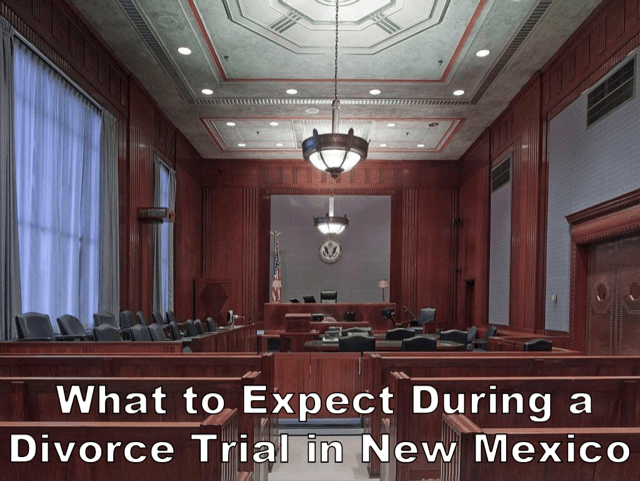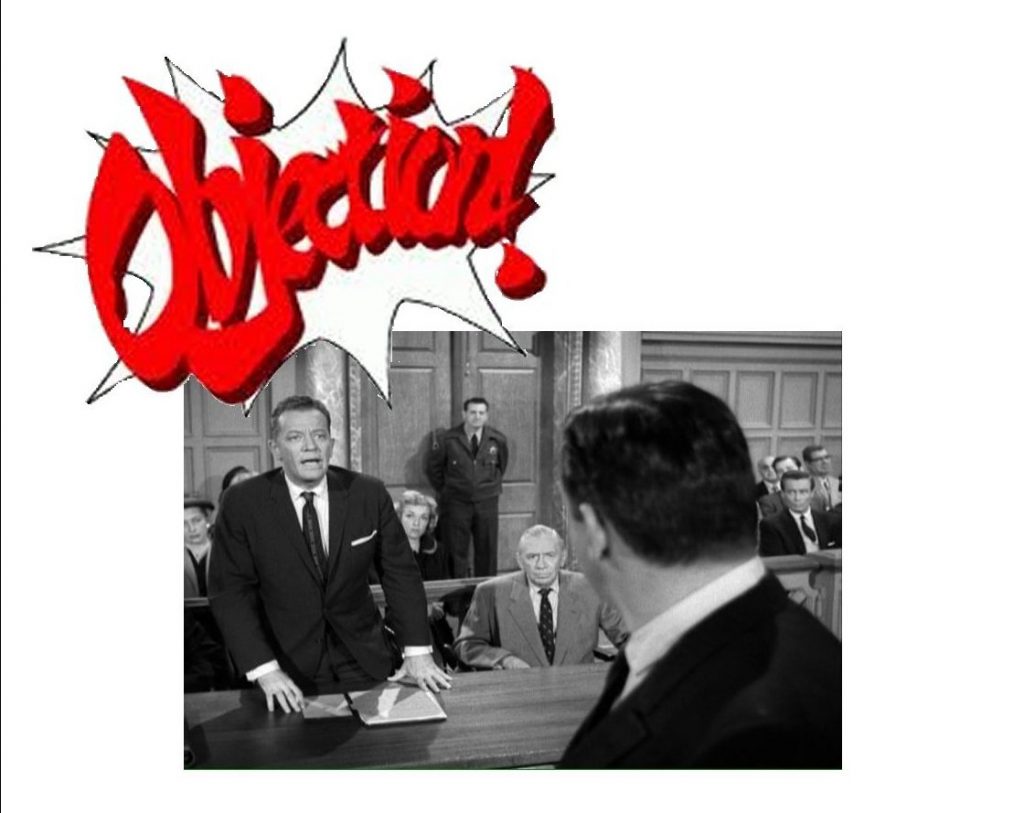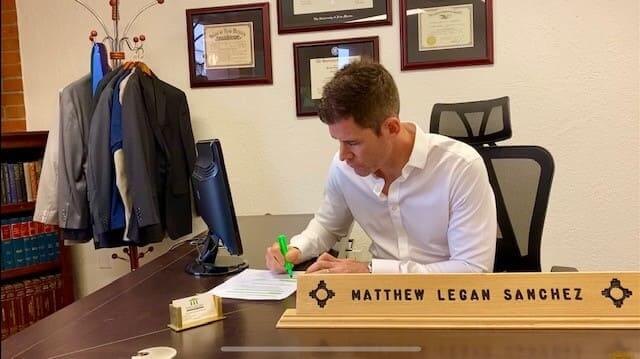
Are you curious about what to expect during a divorce trial in Albuquerque, New Mexico? The unknown can be scary. Not knowing what to expect during divorce trial can be frightening. It’s not unusual for a client to feel nervous and unsure about what to expect at divorce trial, when the divorce or family case is headed towards court.
Today I will address what to expect during a divorce trial, to ease your nerves.
During trial you will likely testify about elements of your divorce. This process basically consists of describing assets, debts, income, or time-sharing issues. There are rules of evidence for testimony that are similar to rules in any sport.
The more that you understand the rules of evidence, the smoother your testimony will be.
WHAT ARE THE CIVIL RULES OF EVIDENCE IN ALBUQUERQUE,NEW MEXICO?
Your attorney’s job is to introduce evidence that supports your side of the story regarding the legal issues in your divorce. The rules of evidence determine what evidence can be introduced and how. The rules of evidence create boundaries for what is acceptable testimony and evidence.
The rules largely surround the reliability and trustworthiness of testimony and evidence. The rules also ensure efficiency by keep testimony from going down a path that leads to nowhere.
The opposing attorney can “object” when your attorney crosses the established boundaries. There are a handful of common objections that you might hear during a divorce trial in Albuquerque, New Mexico.

Common Objections During a Divorce Trial in New Mexico
OBJECTION TO WITNESS TESTIMONY
You likely will be called as a witness during your divorce trial. This part of the trial is called “direct examination.” During direct examination, your attorney will ask you specific questions about the issues in your case.
Your divorce issues include the following:
Your attorney will use your answers to paint a picture about how the issues should be decided.
Here are the common objections that occur during a divorce trial.
OBJECTION – LEADING THE WITNESS
Your attorney must ask you questions that are non-leading. Leading questions are only allowed when confronting an opposing party (adverse party) during cross-examination.
Examples of leading questions include:
- “Your name is Joe Smith, right?” Non-leading: “Please state your name.”
- “You have three children, correct?” Non leading: “Do you have any children?”
With the examples above, you might hear, “objection, leading” from the other attorney. Basically the other attorney is complaining about how the question is being asked. Your lawyer is not allowed to ask leading questions during your direct examination.
In reality, because of time issues, many judges are lenient with leading questions. Most of the time, the other attorney is objecting more to break up your testimony. Leading questions can be “fixed” by repeating the question in an open-ended, non-leading way.
OBJECTION – OUTSIDE THE SCOPE OF DIRECT
The Petitioner goes first during a divorce trial. The Petitioner has the first chance to put on their “case in chief.” During this process the Petitioner calls witnesses and introduces evidence to support their position regarding the legal issues.
Each lawyer has the opportunity to ask his/her witnesses questions during direct examination. The answers are then used to form the argument regarding legal issues.
Once the witness is done testifying, the attorney passes the witness. The other attorney is then allowed to ask questions, called cross examination. An effective cross examination contains short, leading questions, such as:
- You were married on January 21, 1992, correct?
- Isn’t it true that you work at Bahama Bucks?
Cross examination questions are short and leading. Cross examination questions should be like hitting a single – not a home run. The goal is to get short answers that weaved together to form a complete argument.
One general rule for cross examination is that you can only ask questions relating to the questions that were asked during the direct examination. You cannot ask questions outside the scope of the direct.
Let’s say that questions during direct examination only involve child custody issues. The direct examination only involves parenting styles, timesharing, schooling, etc. Because the direct examination only involved parenting styles, the other attorney cannot ask questions about money or something unrelated to the direct examination.
Asking questions outside the scope of direct examination will likely lead to an objection. The assigned judge should sustain the objection. Ultimately, like all of the objections discussed, your judge decides if the objection is granted/sustained – or denied/overruled.
OBJECTION – LACK OF FOUNDATION
The evidence in your trial needs a “foundation” in order to be admitted into evidence. Introducing testimony is similar to building a house. A home needs a foundation before the roof can be added. Likewise, you need to answer foundational questions before being able to testify about conversations, observations, or describing exhibits.
Failing to lay the proper foundation is similar to a movie that suddenly drops you into the middle of the scene without any explanation. Your judge needs background information before being dropped into the middle of your testimony regarding a specific issue.
During your divorce trial you might hear the other attorney object to “foundation.” This objection is basically saying that you have not fully discussed the “who, what, where, when, or why” before diving into an issue. Possibly your lawyer has asked you to explain what happened, without first discussing the issue, people present, etc.
Similar to objections for “leading,” foundation objections are pretty easy to fix. Your attorney needs to ask more questions about the event, exhibit, or observations. Your attorney needs to build the story a bit more. Usually this objection is used to break up your testimony, or to try and get you or your attorney flustered and thrown off course.
Breathe. Build the base of your story. March on with your testimony.
OBJECTION – RELEVANCE
The judge in your case will only consider testimony and evidence that are relevant to your divorce. An objection can be raised to any question that is not relevant to your case. This is a pretty weak objection, because almost anything related to the parties can be considered relevant. Usually the objection is overruled.
Generally the objection is used to disrupt the flow of testimony. It’s difficult to give a speech when you are constantly being interrupted.
Similar to other objections, your judge ultimately decides if the question is relevant.
OBJECTION – AUTHENTICATION
You must authenticate every piece of evidence that is introduced during your divorce trial.
Authentication issues are generally raised regarding social media statements, or websites. Laying the proper foundation for a social media statement can be tedious.
Social media statements are difficult to authenticate because anyone can theoretically create an account with your name and picture, and then post statements under the phony account. Practically speaking, social media statements can only be authenticated when the other side admits that they made the statement from their personal account. Otherwise, the statement likely will not be introduced, either because of foundation issues, or authentication issues.
A smooth way to get around authentication issues is to simply ask questions about the social media post. Point out the picture, statement, and context. Use the post to kill the other side’s credibility. Ask questions about the post without the end goal of introducing the post into evidence.
The social media post may not be formally introduced into evidence. No matter. Your judge will still hear the testimony. This testimony will likely affect your judge’s opinion of the other side’s credibility.
Credibility is everything in family court. Judges have immense power to determine child custody and timesharing issues, based on the child’s best interests. Ultimately your judge will determine the child’s best interests.
At times your goal is to simply ask questions about the picture, post, etc. – not to get the evidence formally admitted. Your goal is to kill the other side’s credibility.
OBJECTION – SETTLEMENT NEGOTIATIONS
Trying to introduce mediation or settlement discussions into evidence is a rookie move. Usually a younger and inexperienced attorney – or pro se party — will try to introduce settlement conversations into evidence. Your judge should be quickly shoot down this evidence.
Settlement discussions are designed to resolve the case outside of court – not to be used against you. Allowing these negotiations into evidence would destroy the effectiveness of negotiations.
You cannot talk about settlement negotiations during a divorce trial in New Mexico.
OBJECTION – HEARSAY
Hearsay is the star of any good lawyer movie and also divorce trials. You can expect to hear a few hearsay objections during any trial.
In a nut shell, the hearsay rule means that you cannot testify about what someone told you. You are only allowed to testify about what you have personally observed.
Hearsay is commonly brought up in relation to a child, therapists, or third party’s statements. A third party’s out of court statement cannot be used in court. The third party must be present to testify.
The confrontation clause enables you to question a witness about alleged statements. This means that you cannot testify about what your child has told you. You also cannot testify about:
- What your doctor, dentist, therapist said;
- You heard a stranger say;
- Your child, friend, brother, family member said;
- Or basically anyone said outside of court.
A statement made by your spouse – a party to the case – usually is not considered hearsay. This is generally not considered hearsay because your spouse is a party to the case and has the ability to be questioned about the statement.
There are a number of exceptions to the hearsay rule. But let’s keep it simple. Simply said, you must call a person as a witness to introduce their out of court statement into evidence.
The hearsay rule also applies to letters that have been written outside of court. Notarizing a letter or statement does not change the fact that it is hearsay.

Divorce trial attorney in Albuquerque, NM
WHY DO ATTORNEYS OBJECT DURING TRIAL?
Attorneys object to testimony and evidence for a number of reasons.
The most important reason for objecting is to keep improper testimony or evidence from impacting the judge’s decision.
Some attorneys object to disrupt your testimony. Some attorneys are easily rattled by objections and it impacts their presentation.
Some attorneys object to give their client the impression that they are fighting hard.
Objections are also used for appeals. You must invoke a judge’s ruling on an issue, by objecting, in order to “preserve” the issue for appeal.
Let’s say that your ex tries to support the argument that an order of protection is needed, because of something that was allegedly posted on the internet. Your ex fails to lay the proper foundation for the website and to properly authenticate the website. You fail to object on the basis of foundation and authentication. Your judge introduces the website information into evidence. This evidence leads to a ruling that greatly impacts your constitutional right to bear arms. By failing to object, you cannot appeal your judge’s decision on this issue.
A BETTER UNDERSTANDING OF COMMON OBJECTIONS PREPARES YOU FOR DIVORCE TRIAL
The unique rules of court are similar to the rules controlling any game. Introducing testimony and evidence involves clear boundaries. Understanding the court process is an important aspect of being prepared for divorce trial.
The point here is not to bog down your thoughts with objections. The key create an awareness of the different objections – and how they can impact your case.
Your attorney should know the objections and appropriate response. Focusing too much on objections leads your story off course. Instead of obsessing about objections — focus on telling your story from the heart.
(505) SANCHEZ HELPS YOU UNDERSTAND WHAT TO EXPECT DURING A DIVORCE TRIAL IN ALBUQUERQUE, NEW MEXICO
Are you still curious about what to expect during your divorce trial in Albuquerque, New Mexico? Matthew Legan Sanchez has over a decade of court room experience and can help with your divorce issues in Bernalillo, Sandoval, Santa Fe, or Valencia County in New Mexico. For more information about what to expect during a divorce trial in Albuquerque, New Mexico call (505) SANCHEZ.

What to Expect During a Divorce Trial in New Mexico






